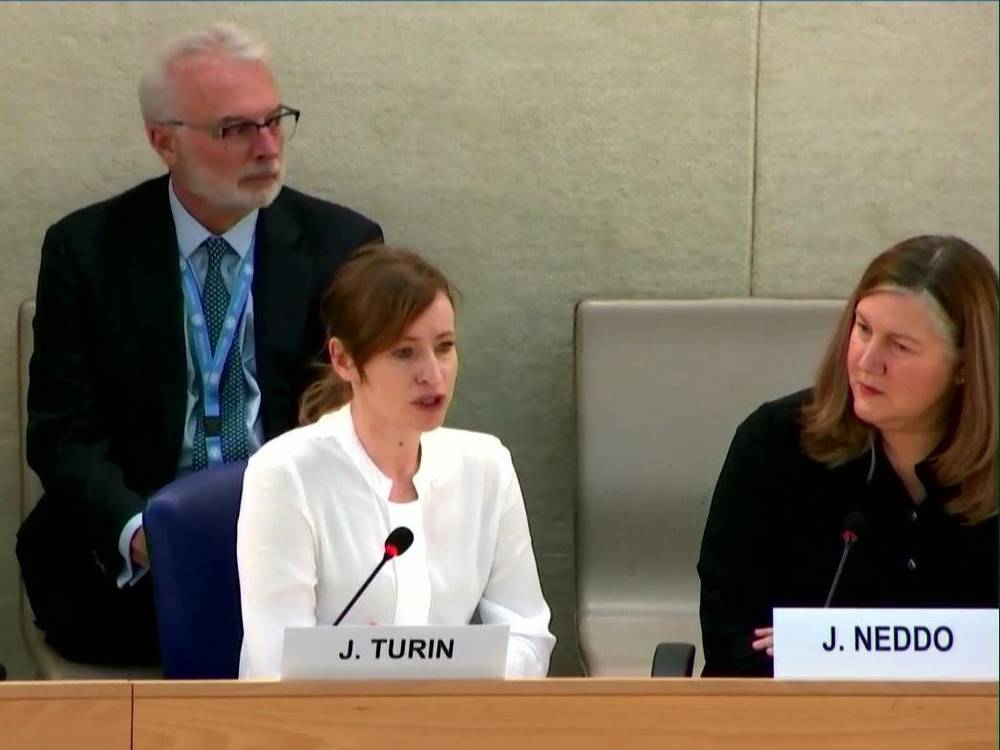On 25 November 2024, Jerneja Turin, adviser of the Center for Human Rights and chairperson of the working group for the Convention on the Rights of Persons with Disabilities at the European Network of National Human Rights Institutions (ENNHRI), participated in a panel within the framework of the UN Forum on the Economy and Human Rights. The discussion took place on the topic of Researching reasonable accommodations for persons with disabilities, including outside the work environment.
In her address, she emphasised the importance of reasonable accommodation as a legal obligation that contributes to dignity, equality, and inclusion. Refusal to make reasonable accommodation constitutes discrimination, and businesses must provide such accommodation unless it would constitute a disproportionate burden. Countries must provide clear legal frameworks, guidelines for the economy, and effective monitoring and enforcement mechanisms.
She explained the difference between the obligation to provide accessibility and reasonable accommodation. Accessibility is a proactive and systemic approach that aims to remove barriers for all. In contrast, reasonable accommodations are reactive and aimed at addressing the specific barriers individuals face when general accessibility solutions are insufficient.
She specifically highlighted the role of National Human Rights Institutions (NHRIs) as independent institutions whose task is the promotion and protection of human rights, and presented examples of how they strive to realise the right to reasonable accommodation and ensure accessibility for disabled people.
She also touched on the rapidly evolving role of artificial intelligence (AI). She stressed that AI offers many opportunities to improve accessibility and inclusion, but also brings significant challenges, especially for persons with disabilities. "One of the key challenges is the bias created by using historical data, in which persons with disabilities are often underrepresented," she explained. Such bias can lead to discriminatory algorithms that exclude individuals for non-standard career paths or other reasons. In addition, many AI tools, such as job search platforms or chatbots, are often inaccessible to people using assistive technologies such as screen readers.
Still, AI has great potential to transform work environments into more inclusive ones. Examples of the use of AI include personalised adaptations such as speech-to-text tools, automated subtitles, or navigation in large spaces. AI can also help companies monitor workplace inclusivity, for example by analysing equal access to promotions and training. AI tools can thus significantly improve the inclusion of people with disabilities in work environments, and it is crucial to ensure that these tools are transparent, unbiased, and accessible.

![[Translate to English:] Jerneja turin na seji](/fileadmin/_processed_/b/8/csm_UN_BHR_Jerneja_6432447721.jpg)